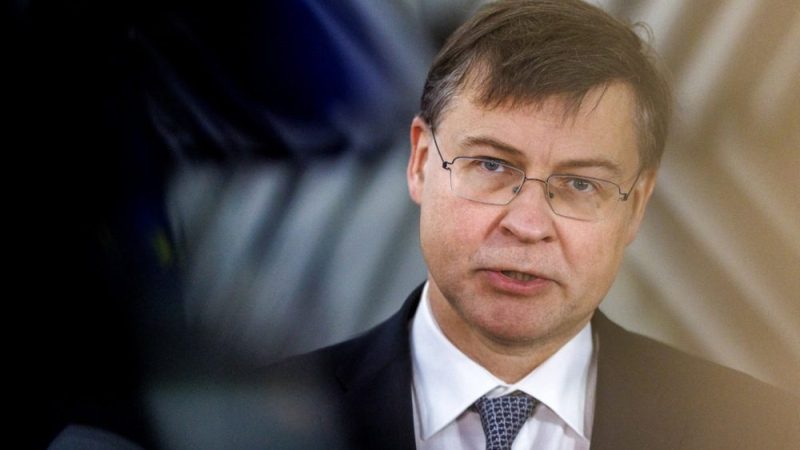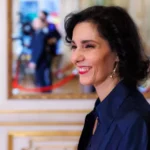As the summit which will bring together the members of the World Trade Organization (WTO) in Abu Dhabi at the end of February approaches, the EU is considering a reform of the “dispute settlement mechanism” of the organization, the body of appeal from it, comparable to a court of justice, being currently paralyzed by the United States.
The 13th WTO Ministerial Conference (CM 13), seen as the last chance for reform of the organization before a potential re-election of former Republican US President Donald Trump, will be held in the capital of the United Arab Emirates from 26 to February 29, 2024.
The EU, which defends the principles of free trade and multilateral cooperation, wants the WTO to remain a relevant actor. To do this, Brussels would like the organization to emerge from the paralysis in which its highest decision-making body finds itself, the appeals body, which has no longer functioned since 2019 because the United States is blocking the appointment of new judges.
“The EU has a fundamental interest in a strong and reformed WTO, so that it can respond effectively to the challenges and trade issues of the 21st century,” said Valdis Dombrovskis, Vice-President of the European Commission responsible for of trade policy, to journalists on Tuesday (January 23).
“Current WTO rules, which still govern most global trade, are our best safeguard against the fragmentation of the global economy,” he added.
In recent years, major economic blocs, particularly China and the United States, have increasingly resorted to subsidies and protectionist measures to favor their domestic industries. This development worries economists, who consider that the global division of labor is crucial for economic growth. Indeed, the latter advocate more a specialization of countries in certain areas where they have an advantage rather than an ineffective diversification of their activities.
“It is necessary to stop the erosion of trade rules,” Mr. Dombrovskis said, adding that “we expect [the ministerial conference] to result in dispute settlement reform or, at least, that it brings us closer to this objective and offers us a clear perspective to find a solution.”
75% of world trade is still governed by the WTO
Even today, 75% of global trade follows the rules established by the WTO, which includes trade between the EU and third countries with which the EU does not have a free trade agreement, such as the United States, China, Brazil and India.
However, in the event of an alleged violation of the organization’s rules, the only possibility for countries to challenge is to refer to what is called a “panel”, which constitutes the first step in the dispute resolution system, but they cannot appeal the decision taken by the panel, since the appellate body, which is normally the second possible step in the process, is not functioning.
“As you know, multilateralism is under pressure, even called into question by some,” Hadja Lahbib, Belgian Minister of Foreign Affairs (Reform Movement, Renew Europe), told journalists.
“It is therefore all the more crucial for actors like the European Union to do everything to maximize the chances of success of such a ministerial conference,” Ms. Lahbib said of the next WTO meeting.
To do this, Belgium invited the organization’s secretary general, Ngozi Okonjo-Iweala, to an informal meeting of ministers responsible for trade policy from all EU countries, which will be held in Brussels on Monday and Tuesday. .
“We reiterated our strong commitments to the WTO,” said Ms. Lahbib.
The United States blocks the reform process
However, the main obstacle to reforming the WTO dispute settlement system remains the United States, noted Claudia Schmucker, director of the Geopolitics Center at the German Council on Foreign Relations (DGAP), a think tank that advises the German government.
“Because the WTO is constantly being declared dead in today’s geo-economic environment, people are saying that it has to deliver something otherwise it will eventually become irrelevant,” Schmucker told Euractiv.
“During [the last ministerial conference in 2022], States agreed to decide on the future of the appellate body by 2024,” she recalled. “We always thought that this 2024 ministerial conference would be the critical point for this to happen. »
“The problem is the United States,” she said, emphasizing its fundamental opposition to an international dispute settlement system capable of creating jurisprudence at the WTO level.
She said many Americans would also complain that the appellate body’s past rulings favored China.
Given the re-election chances of former President Donald Trump, a proponent of WTO-violating trade barriers such as unilateral tariffs, the organization’s supporters hope to reach a deal before November.
If Donald Trump were to be elected again, “it is likely that nothing would be possible,” warned Ms. Schmucker.
“To be honest, we are not expecting a major agreement, but we are hoping for it,” she said. “This is why it is urgent to act at this time, because we hope that the Americans are moving forward a little,” she concluded.
This article is originally published on euractiv.fr








